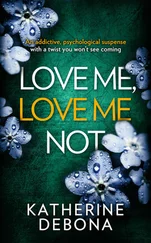When my mother first arrived, I was shocked by how drawn and worn her face was, how thin and fragile-seeming her frame. She was unquestionably old now, as she hadn’t been before, and I saw this with a pang as she stepped through the glass doors at the airport’s new terminal, a pang I felt again as we settled in our seats on the train, arranging our bags in the unclaimed space between us. I had paid for a first-class cabin, and on our way to it we passed through six or seven cars, comfortable and European and aggressively air-conditioned, to find that our own was the sole unmodernized wagon, a rusted relic of socialism. Its claim to first-class status lay in the fact that it was divided into four eight-person cabins, each of which had a glass door that could be shut, though they all stood open now in the hot unmoving air. I was mortified by this, which I felt as my own failure, though I tried to laugh it off; only in Bulgaria, I said, and told my mother that now she would have an authentic Balkan experience. My mother took my lead, dismissing any discomfort as she arranged her things, even as her discomfort was clear, not least in how she eyed the other passengers sharing the small space. My mother has always been mistrustful of strangers, a part of the timidity or fear that at times seemed to dominate her life and that I feared I had inherited, learning from her a hesitancy, a kind of suspicion or doubt of my forces that had kept me, that might still keep me, from finding how far they could run. Anything foreign caused her alarm, as I could see in the way she grasped her purse, even when she delighted in the newness of what she had seen. She was uneasy now, too, though any sign of it was restrained by the politeness that was an imperative almost equal to her fear. I was relieved to see that our cabin wasn’t full; my mother and I were able to claim an entire side of it for ourselves, the three other passengers having arranged themselves to face forward as the train began to move. Of these three, one was traveling alone, a man in his thirties, bearded and overweight, a fat paperback open on his lap. At the opposite end of the bench, by the window, sat an older woman, very large and wrapped in layers of clothing despite the heat, and sprawled upon her, half in her lap and half in the seat beside her, apparently sleeping, there was a boy of perhaps six or seven. His face was turned toward the sun, though the woman held one hand above him so that a shadow fell across his eyes. My mother was immediately charmed by him, he was the same age as my brother’s child, but my own heart sank at the prospect of the noisy hours ahead. I wished him a long sleep as I took out my book, I don’t remember now what it was, something in English, and my mother pulled from her bag the stack of magazines she carried with her everywhere we went. We settled in to read, my mother and I and the man with his book, which made him laugh out loud every now and again. When the heat got too much for her to bear, my mother would lay her magazine aside or close it and use it as a fan, looking at me with wide eyes and mouthing It’s so hot, the peculiar drawn openness of the southern vowel clear even in pantomime. I could only shrug at this, helpless to improve things beyond the opened window and door, which allowed for the occasional draft, though the train moved too slowly and stopped too frequently for anything like a real breeze. I set my book aside often to look out at the landscape as it shifted, at the towns and villages we passed, nearly all of them in disrepair, cottages and little houses falling into themselves. The huge fields were brown and cracked with drought, though they were still worked by huddled figures with bundles on their backs, or by the rare tractor kicking up dust. As we passed these places, it was easy to imagine that we were in a different time, the buildings and natural spaces almost untouched by the modern age, except that so many of the cottages we passed, even the most decrepit, were festooned with the same satellite dishes I knew from my neighborhood in Sofia, some small and modern, others huge and tripodal, discolored with age.
After an hour or so the boy’s sleep grew fitful; he turned and kicked his legs, then heaved himself out of the woman’s lap and sat blinking as she roused herself in turn. The boy looked around the compartment, at once shyly and openly, his eyes meeting mine briefly before shifting away. Lie back down, I heard the woman say to him, as she put her arm around him to pull him back, but he wasn’t tired, he said, and he braced both his arms against her to resist. He was hungry, and the woman rooted around in one of the large bags she had arranged at her feet, pulling out a sandwich wrapped in cellophane, which she folded back before handing it to him. He grabbed it and slid off the bench, standing at the window to watch the landscape as it passed. He was still half-asleep, his eyes glazed over, chewing slowly, mechanically, as if willing himself awake. I was looking at him more than at my book, and at my mother, too, who was watching him and smiling, smiling more broadly whenever he looked her way; but he was shy with her, not quite smiling back. He grew more alert as he ate, taking from his grandmother a bottle of airan , yogurt mixed with water, a favorite drink here. He ate more seriously as he woke, taking larger bites and throwing his head back to drink, holding the empty bottle inverted in the air, catching the last drops on his tongue. His grandmother took the trash from him, after which he held his hand in front of her, palm up, and she gave him a small piece of chocolate wrapped in foil. He ate this quickly and without any show of pleasure, and then, when the woman held out her hand for the foil he had crumpled, he made a quick leap and tossed it out the window. She scolded him for this, saying something I couldn’t catch, perhaps it was just his name, but he spun around with a broad smile, looking at each of us, as if at once surprised and delighted by his own daring. I tried to look at him sternly, to show an adult solidarity with his grandmother, but my intention gave way before his smile, which was impossibly bright, sure of itself and sure, too, that nothing could resist it for long.
He was a beautiful child, slim and long-limbed, his skin bronzed from his vacation at the sea. He was used to being adored, I thought a little bitterly, despite responding myself to his loveliness. We all felt it; my mother was immediately won over, and even the man across from us smiled over the top of his book. His grandmother pulled him back into his seat, still scolding him, telling him to sleep, they had a long way to go, and then, when he refused, she told him to sit still at least, she was tired, she wanted to rest some more. But he only sat still for a short time; soon enough he was casting about for diversion. The window beside him was made of two long panes, the upper of which slid down, though whatever latch or catch should have held it was broken, and we had lodged bits of paper in the corners to hold it open. He reached up, curling his fingers around the top edge, and hauled himself to his feet, standing on the bench so that his head was above the lowered pane; he stared out over the fields we passed, his view unencumbered by the clouded glass. The train had picked up speed, and his hair was pushed about in the moving air. He began playing a game, turning his head quickly and repeatedly from right to left, focusing his sight on an object and following it as we passed; it was something I had done, too, staring out of windows on long trips in the car. Poor boy, I thought, he had nothing at all to do, no toys or books, though perhaps he was too young for books, and with the prospect of many hours to fill. He turned away from the window, facing the back wall, and reached up toward the metal rack where we had placed our luggage. Then, taking the edge of the rack in both hands, he lifted himself up, his right leg striking out for the window, seeking purchase. This woke his grandmother, who grabbed the leg nearest her and tugged on it, saying Dolu , down, saying it again when he dropped to the seat but remained standing. Sit down, she said, you’re bothering these people, they want to read, and it was true that we had stopped reading, having turned to look instead at the two of them; but I didn’t feel bothered, he was more interesting than my book.
Читать дальше












